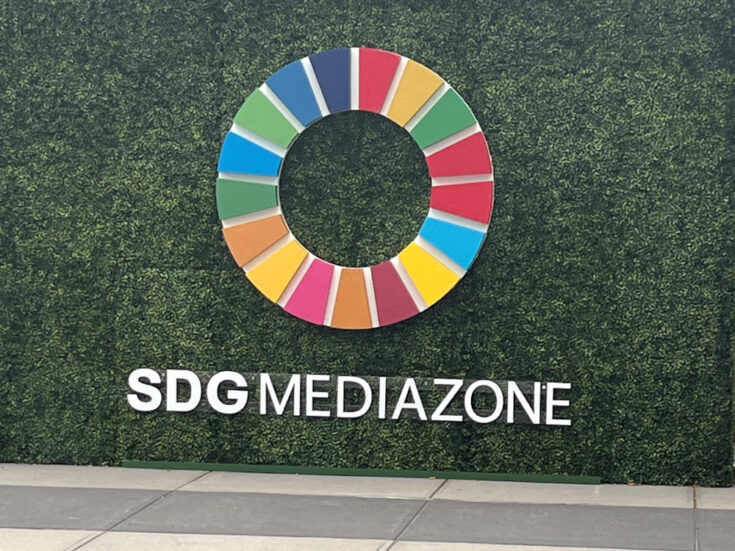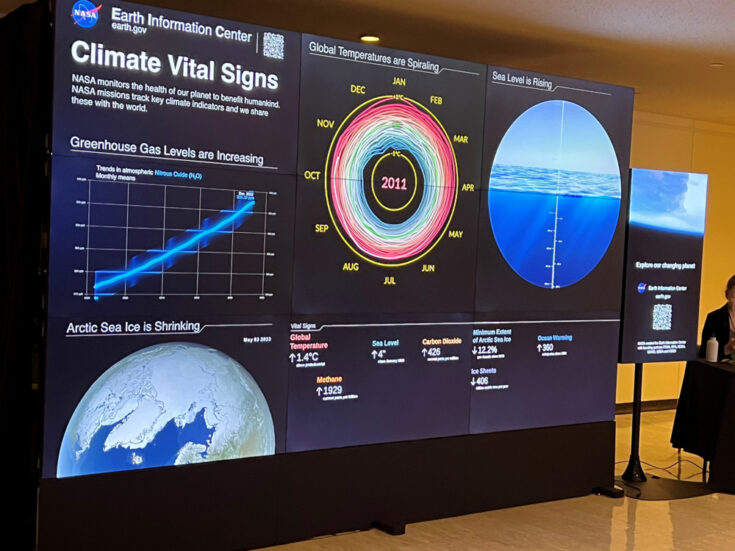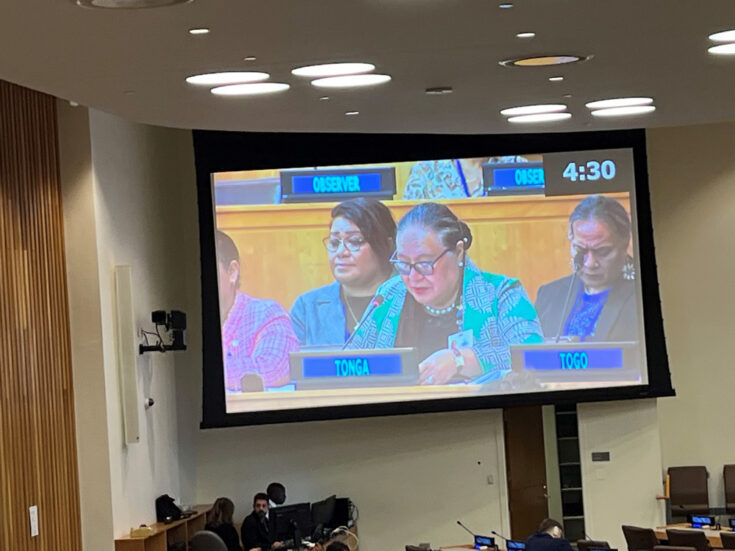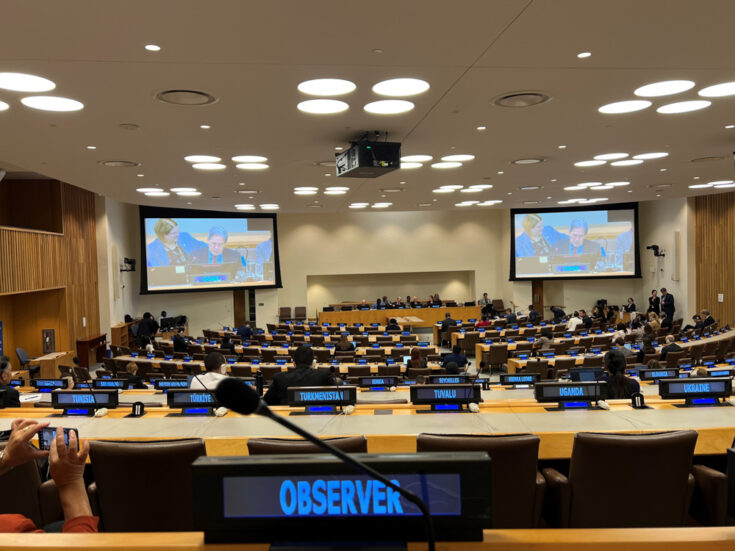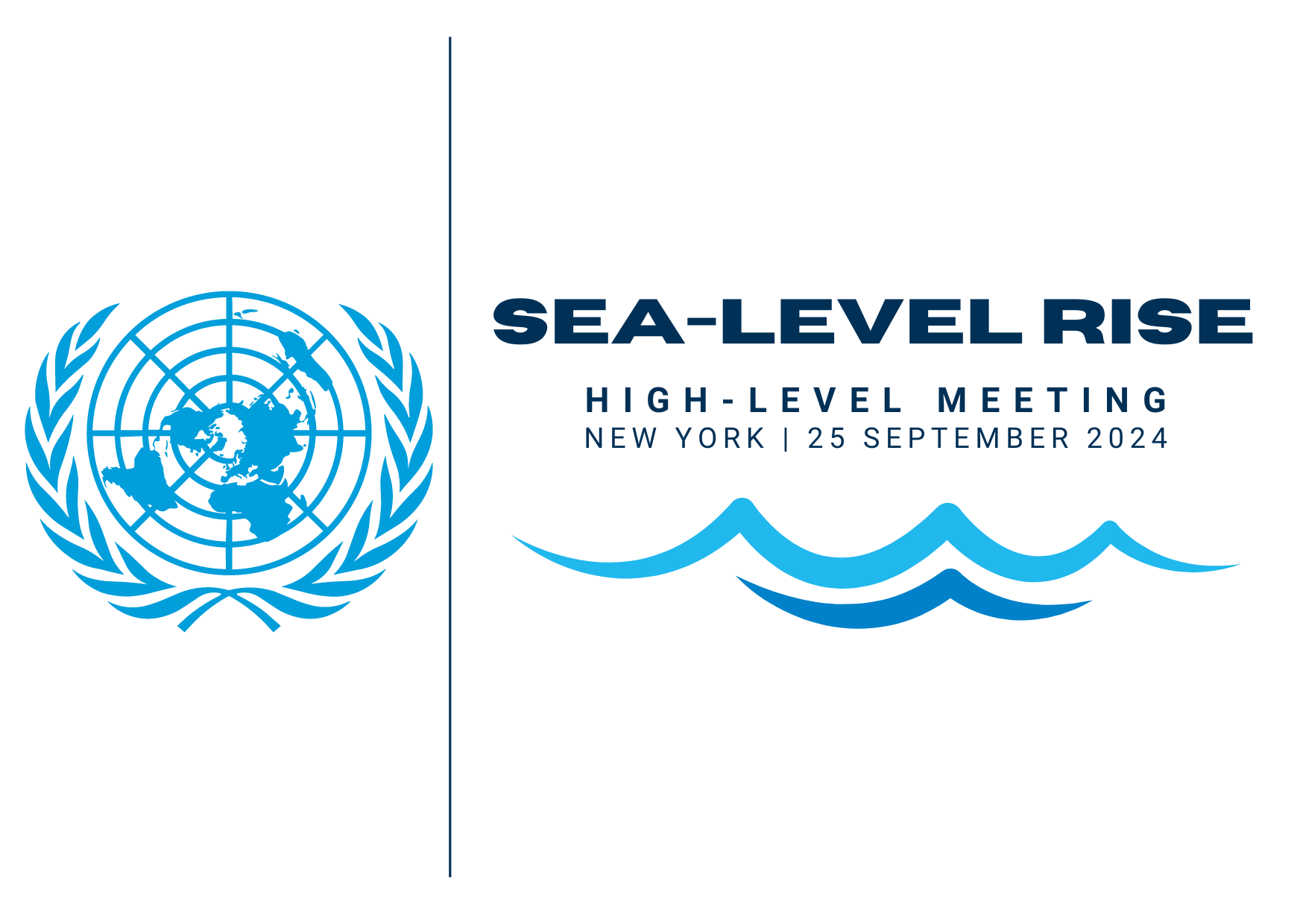
On September 25, 2024, world leaders, experts, and stakeholders gathered at the United Nations in New York for a pivotal High-Level Plenary Meeting on Sea Level Rise (SLR). The meeting was convened in response to the growing existential threat posed by sea level rise, a direct consequence of climate change and the rapid melting of polar ice caps. As the world faces this increasingly pressing issue, the meeting highlighted several key points that the international community must address. The Khaled bin Sultan Living Oceans Foundation participated as a credentialed observer at the meeting, thanks to a nomination from the Saudi Green Building Forum. This reflects the Foundation’s ongoing commitment to addressing the critical challenges posed by climate change and rising sea levels.
The acceleration of SLR is intensifying risks globally, leading to more frequent and severe flooding, loss of land, and displacement of populations. Additionally, rising seas are putting biodiversity and ecosystems at greater risk. At the meeting, delegates underscored the growing urgency of taking action to address these threats. As sea levels continue to rise, the consequences will only worsen, making immediate intervention crucial. Sea level rise disproportionately affects vulnerable regions, particularly Small Island Developing States (SIDS) and low-lying coastal areas. These communities face not only the physical impacts of rising seas but also the economic and social consequences, including loss of livelihoods and displacement. The international community acknowledged the need for greater cooperation and financial support to help these regions adapt to the impending changes.
In the face of rising seas, adaptation and resilience-building strategies were front and center at the meeting. Innovative solutions such as resilient infrastructure, the restoration of natural barriers like mangroves and coral reefs, and community-based approaches were highlighted as essential measures to safeguard vulnerable regions. These strategies will play a critical role in minimizing the impact of SLR and ensuring that communities can withstand future challenges. The meeting also emphasized the need for stronger global commitments to reduce greenhouse gas emissions. Delegates reaffirmed the goals of the Paris Agreement as central to slowing sea level rise. Mitigation efforts, coupled with adaptation, must go hand in hand to address both the root causes and the immediate impacts of SLR.
One of the key takeaways from the meeting was the critical need for increased funding, particularly for developing nations. Innovative financing mechanisms, such as climate bonds and partnerships with the private sector, were discussed as potential solutions. Without sufficient financial support, vulnerable regions will struggle to implement the necessary resilience measures to protect their communities from the effects of rising seas.
The legal and human rights implications of SLR were another important topic of discussion. As entire nations face the threat of submersion, complex issues surrounding land sovereignty, displacement, and migration arise. These challenges must be addressed with careful consideration of international law and human rights frameworks to ensure that affected populations are protected and supported. Throughout the meeting, leaders from countries at the forefront of the SLR crisis, such as Tonga, Fiji, the UAE, and the Bahamas, delivered powerful proclamations. They emphasized the immediate and devastating impacts of rising seas on their nations and called for swift action, increased financial support, and concrete global commitments to address the crisis. Their voices served as a poignant reminder of the real and urgent threat posed by SLR.
The UN High-Level Plenary Meeting on Sea Level Rise concluded with a strong call for coordinated global action. Addressing the complex challenges of SLR will require urgent mitigation, adaptation, and significant financial investments from the international community. As the world looks ahead to upcoming COP summits and other international climate discussions, sea level rise will remain a critical issue that demands immediate and sustained attention.
